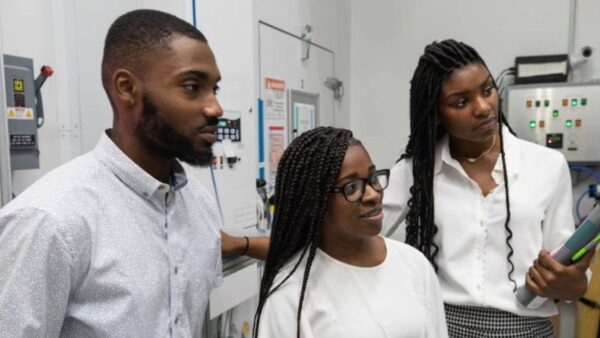The National Aeronautics and Space Administration recently announced that eight Historically Black Colleges and Universities will receive $11.7 million in funding through its Data Science Equity, Access, and Priority in Research and Education program in an effort, it says, to empower the “next generation in STEM” researchers — and to get Black students interested in NASA.

The DEAP awards, according to a NASA press release, will make it possible for “HBCU students and faculty to conduct innovative data science research that contributes to NASA’s missions.”
About 25 percent of Black scholars who earn STEM degrees are HBCU graduates, according to research. Yet the space exploration field is still struggling with lack of representation.
STEM Funding
The following HBCUs with proposed projects to benefit from the funding — that will support the facilitation of students and faculty in data-related missions for NASA — include Bethune-Cookman University, Fayetteville State University, Florida A&M University, Lincoln University, Morgan State University, North Carolina Agricultural & Technical State University, North Carolina Central University, Durham and Prairie View A&M University.
The institutions through their awarded projects have up to three years to “establish institutes and partnerships to increase the number and research capacity of STEM students at HBCUs,” according to the release. In that period, schools also should be working to “accelerate innovation in a wide range of NASA science, technology, engineering, and mathematic research areas, and prepare the future workforce for data-intensive space-based Earth sciences.”
“We’re pleased to make progress through awards like this to intentionally build the STEM pipeline of the future, especially in communities of color,” said NASA deputy administrator Pam Melroy. “It’s fitting during Black History Month that we make this tangible step to build on the talent pool at HBCUs in our ongoing work to bring to the table all the talents and perspectives we’ll need to send humans to the Moon, Mars and beyond, and do amazing science throughout the solar system.”
Last of Black Participation in NASA
Reportedly, only 13 percent of NASA employees are Black or African-American.
To date, more than 360 people have participated in NASA’s astronaut program, with just 15 of them being Black, Futurism reports. That’s only about four percent of all astronauts, even though African-Americans make up 14 percent of the U.S. population.
According to Mike Kincaid, associate administrator of NASA’s Office of STEM Engagement, NASA is creating a pathway for future Black workers in the STEM (science, technology, engineering and math) industry that will impact the work of data scientists and analysts significantly. Kincaid manages the Minority University Research and Education Project, where financial assistance is given to Minority Serving Institutions through competitive awards.
“The increasing use of data science at NASA and beyond really drives home the need for a future workforce with data science knowledge,” said Kincaid. “With our newest collaboration, NASA created an exciting pathway to find new talent at HBCUs.”




